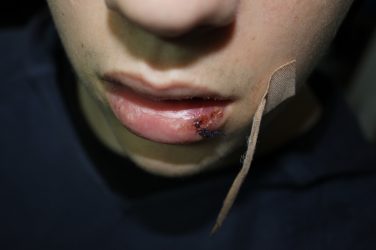Have you ever wanted to shovel donkey excrement? To smell this and the fresh country air as you escape from your comfortable life into many a city-dweller’s dream? Well then perhaps you would enjoy WWOOFing. Working Weekends on Organic Farms – now World Wide Opportunities on Organic Farms – was established in 1971 by secretary Sue Coppard, who sought to support and to grow the burgeoning contemporary organic movement. To do this, she organised weekends away with fellow city-dwellers, so they could work on organic farms in return for room and board. This theme of exchange is the defining feature of the experience – not only is labour exchanged for accommodation and nourishment, but equally for knowledge and for cultural discovery.
Since its foundation, WWOOF has spread rapidly across the world, becoming a truly international phenomenon which now has national networks in 99 countries. After paying £20 for the individual registration fee, you can search through a host directory and be it a French wine producer, a vanilla farmer in balmy Tahiti or a pistachio farmer in the Iranian desert, you are guaranteed to find a farm that takes your interest. The development of digital communications and budget airlines has allowed for the expansion of the scheme beyond anything Coppard could have imagined, and now WWOOFing has also become a means of cheap travel, with workers outnumbering their hosts tenfold. Any number of reasons can explain this trend, from people seeking to escape the apparently infinite growth in urban populations – and the resulting increase in pressure and pollution, to a post-2008 backlash against consumerism combined with a shift in spending habits leading from the financial crash. Indeed, the explosion of the sharing economy in part reflects this culture of thrift, with sites like Airbnb challenging the dominance of hotels and revolutionising travel. WWOOFing, with its exchange of labour for accommodation, removes money from the equation and goes one step further towards a true sharing economy.
As a WWOOFer, you are seen less as a foreign passer-by, and are recognised as someone keen for cultural exchange – in turn, locals invest their time in you, allowing for a real understanding of your surrounds.
Following my first year of university, myself and two equally cash-strapped friends decided to set off on a summer adventure, seeking a more authentic experience than the tourist traps of a city break or the clichés of a South American expedition. Two of us being French students, we chose France as our destination as it was only a cheap and easy journey away, and would provide us with the opportunity to practice our speaking skills whilst minimising the WWOOFer-farmer language barrier. Browsing the near 300 hosts willing to host three people, we came across some farms on the strikingly rugged and beautiful island of Corsica and immediately sent out two dozen or so requests. Fortunately, our host-to-be, Paule, was available for our dates, and we secured a month at the Alta Rocc’ânes donkey sanctuary in Serra-di-Scopamène, a minute village nestled amongst the peaks of Corsica’s mountainous backbone.
Just a month later we stepped out of Paule’s pick-up truck, content to have left the dizzyingly twisting but picturesque roads leading to the donkey sanctuary and campsite. Our first experience set the tone for our stay at the village, which was marked by a feeling of community and acceptance. Before the old stone cabin where we slept, three tables were laid out with locals drinking, dining and laughing. Within minutes we had met the village mayor, as we ate sausages made from his brother’s pigs which were reared on the neighbouring farm. That evening, at the only bar in the village, the mayor offered us several drinks as he spoke of Corsica’s fascinating history as a point of intersection between French and Genoan/Italian culture, owing to their alternating control of the island. As a WWOOFer, you are seen less as a foreign passer-by, and are recognised as someone keen for cultural exchange – in turn, locals invest their time in you, allowing for a real understanding of your surrounds.

But what about the work? First of all, it is worth mentioning that WWOOfing provides a fantastic way to travel, but not a holiday as such. That being said, the regulations are clear, and hosts are not allowed to ask more than four hours of work from their guests. As one can imagine, hours are in fact organised fairly informally and depend a lot on the host, the attitude of whom can be gleaned from their profiles and conversations beforehand. Luckily, Paule let us work double days as we wished so we could take long weekends to hitchhike and couchsurf around the island, exploring and sometimes sleeping on its white sandy beaches and azure seas. She recommended many local spots which were unknown to tourists, and even gave us a lift there in her horsebox or her battered and characterful Renault 4.
As three students offering little in specific practical skills, we were available to help Paule with any odd task she had. Above all, we helped look after the donkeys (including the aforementioned shit-shovelling) and assisted with the running of our host’s business, which uses children’s donkey rides to reinvest into the well-being of the animals. We learnt the correct way to brush donkeys so as to remove any muck and matted hair, as well as figuring out the surprisingly complex process of saddling the animals. Taking the children for donkey rides in the Corsican mountains was definitely the most idyllic of our tasks, and although tiring in the heat, allowed for a view of the island not accessible to drivers. Despite the isolated location of the sanctuary, customers arrived frequently, owing largely to the historical importance of donkeys to the Corsican way of life. Without large-scale state investment until after the Second World War, Corsicans were (and many still are) proudly self-reliant, living in isolated mountain communes which depended upon subsistence farming. The donkey was used as a cheap means of transporting supplies and firewood, and its agility is still unmatched by cars in particularly undeveloped parts of the mountains. In fact, another of Paule’s services employed the animals to carry the hikers’ bags, who were exhausted from walking the GR20, Europe’s most challenging route.

Amongst other rewarding tasks, such as building enclosures and helping collect the goats that were to fill them, there was admittedly less interesting work. Having to rake the adjacent campsite for our first week as WWOOFers was not the most enjoyable of tasks, but this paled in comparison to oiling the saddles for the donkeys. This task required the use of a fine paint brush to apply several coats to immensely oil-thirsty leather, and felt more like a punishment than anything. However, such tasks are part and parcel of country life and, with the speed and intensity with which Paule worked, we admired the resilience of those living in these mountains, our minds opened to the huge differences in our existences.
WWOOFing allowed us to explore this unspeakably beautiful island on a miniscule budget.
Our trip culminated in the Fête de la Saint-Jean which was held on the 24th of June and provided the perfect end to our farming escape. The whole of the village came out into a square, illuminated by hanging lights and huge fires which had been lit to welcome summer’s arrival. Sat on the same huge tables that had welcomed us a month earlier, the villagers – now friends and acquaintances – ate local wild boar from an enormous grill, washing it down with plentiful red wine. With people jumping over the fire, as tradition dictates, and with Corsican songs filling the air, we sat with Paule and truly felt like part of the community there, unlike the tourists who marvelled at the festival, looking from the outside in before driving off to their hotels.
WWOOFing allowed us to explore this unspeakably beautiful island on a miniscule budget, whilst opening our minds to a different way of life and allowing us a break from the madness of the metropole. This experience led to my working on several other farms since, through both WWOOF and other initiatives such as Helpx.net, and to my incessant reminiscing about the feeling of liberty and satisfaction the scheme provides. It has confirmed also my dream – however middle class – to retire to a more self-sustaining and ecological life when I’m older. I’m sure Sue Coppard didn’t expect her initiative to grow so large, but I am immensely grateful to her for founding it, and I cannot recommend the experience enough.





